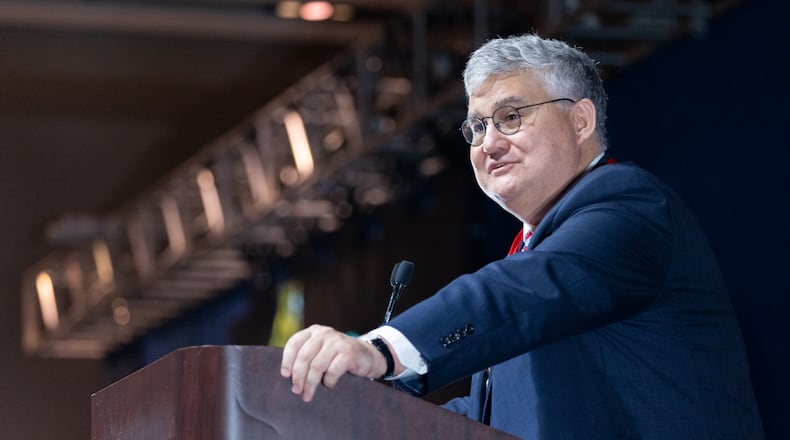Georgia Republican Party Chairman David Shafer told congressional investigators last February that he learned of a plan to convene “alternative” presidential electors to vote for Donald Trump just a few days before the electors met in December 2020.
In testimony released Monday, Shafer also told investigators had no knowledge before the electors’ vote of plans to use it as a tool to persuade Vice President Mike Pence to overturn Democrat Joe Biden’s victory in Georgia and other states.
“It would not have occurred to me that the vice president could make that decision on his own,” Shafer told the investigators.
Shafer’s testimony was part of a deluge of interview transcripts and documents released in recent days by a U.S. House of Representatives panel that investigated the events that led to the Jan. 6, 2021, attack on the U.S. Capitol. Last week the panel’s final report concluded that Trump and key allies planned for months to overturn Biden’s victory, using false allegations of voting fraud as a pretext.
Part of the plan involved asking Pence, Congress and state legislators to recognize Trump electors in several states, where Biden had won the popular vote. Planning for the scheme was underway in some states before the election – including Nevada, according to the Associated Press.
Shafer’s testimony and documents released by the committee do not show pre-election planning in Georgia.
Georgia Republicans convened their slate of fake Trump electors on Dec. 14, 2020 – the same day the official Biden electors met to cast their ballots. When an Atlanta Journal-Constitution reporter stumbled upon the Republican meeting, he was initially told it was a group of “educators.”
Shafer later invited the media to attend the vote, which he said was needed to preserve Trump’s legal rights in a pending lawsuit that contested Biden’s victory.
Documents released by congressional investigators show Trump attorney Kenneth Chesebro asked Shafer and other Georgia GOP officials on Dec. 10 to arrange the Trump electors meeting. Chesebro’s email included draft Electoral College paperwork for the electors to submit.
Chesebro said in the email he had spoken with Trump attorney Rudy Giuliani, who was “hopeful that the Georgia electors will go along with this strategy.”
Shafer told investigators he learned of the idea from another attorney a day or two before Chesebro’s email, which he did not remember reading. He said he became convinced the electors’ vote was needed to preserve Trump’s legal remedies.
Shafer said he did not know at the time that the vote would be used to try to overturn Biden’s victory in Congress on Jan. 6.
Shawn Still, another Georgia Trump elector, offered similar testimony in February. He told investigators he remembered hearing about the possibility of convening the electors a couple of weeks before the Dec. 14 vote. But he likewise understood it to be a move needed to preserve Trump’s legal options.
Still likened the move to “when you have the Super Bowl, you print t-shirts, both teams as being the winner, and you keep the t-shirts for the ones that were the winner, and you throw away the ones that weren’t, but you still have two sets of t-shirts for both sets of winners.”
Still was recently elected to the Georgia Senate.
John Isakson was one of the Trump electors. In an interview last April, he told investigators he received a phone call about convening at the Georgia Capitol a couple days before the vote. He said it sounded like a “political rally,” not a formal electors’ vote, and he declined to attend because of work.
Isakson later called the effort “political gamesmanship” in media interviews.
The Trump electors scheme is now the subject of criminal investigations by the Justice Department and a Fulton County special grand jury.
About the Author
Keep Reading
The Latest
Featured



